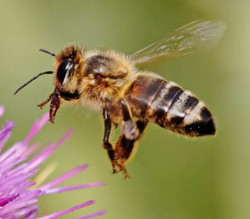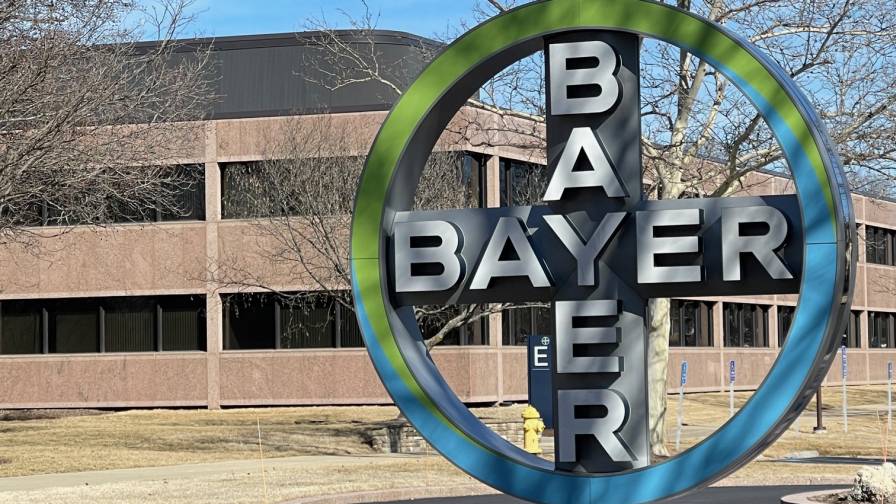Bayer Initiates Global “Bee Care Program” To Further Promote Bee Health

Bayer has announced intentions to create a global “Bee Care Program” to further promote bee health worldwide, according to a press release from the company.
As part of the program, two dedicated “Bayer Bee Care Centers” are to be established. In Europe, one center is scheduled to open in Monheim, Germany, in mid-summer. A second center, which will focus on North America, is planned for later in the year in North Carolina.
“As a company with long-standing expertise in both animal health and crop protection, Bayer is committed to environmental stewardship and sustainable agricultural practices, including protection of beneficial insects such as honey bees,” said Professor Dr. Wolfgang Plischke, member of the Bayer AG Board of Management responsible for Innovation, Technology and Environment.
“We have been providing products specifically designed to ensure bee health for more than 25 years,” Plischke added. “And through promoting sustainable farming practices, we support farmers worldwide to produce safe, high quality and affordable food for an increasing world population.”
The new centers will serve as a scientific and communication platform to consolidate existing and future bee health projects from Bayer companies in cooperation with external partners. They will also foster information sharing and will provide a platform for discussion and new ideas.
Bayer believes that this collaboration is essential in order to find sustainable solutions that will improve honey bee health.
“The Bee Care Program and the establishment of the Bee Care Centers will bring Bayer`s extensive experience and knowledge in bee health under one roof and will ensure that dedicated resources for bee health are available,” Plischke said.
Honey Bee Care – Challenges And Solutions
Bayer CropScience is working with the agricultural communities worldwide to ensure the safe use of crop protection products which are essential to protect plants from pests and diseases.
“At Bayer we take our responsibility to bee health very seriously,” said Sandra Peterson, Chief Executive Officer of Bayer CropScience. “We make great efforts to ensure that our products can be used in a bee-responsible manner. We do this through researching and extensive testing of our products, thorough risk assessment and the focused stewardship measures we have put in place. Our plans to establish these two Bayer Bee Care Centers further underline our commitment to global bee health.”
Given the essential role that honey bees and other pollinators play in the pollination of a large number of food crops, there has been considerable public interest in the discussions and science related to honey bee health and colony losses over the last few years.
Although the global number of bee colonies increased by approximately 45% over the last half century, the decline in Europe and North America over recent years due to a number of factors including diseases, parasites, extreme climatic and environmental factors and also certain agricultural and apicultural practices is concerning.
“For more than 25 years Bayer has played a leading role in securing bee’s health with proven products to control the varroa mite – a parasite which transmits pathogenic viruses and is considered to be one of the most significant factors in losses of honey bees in Europe and North America,” said Dr. Jean-Luc Lowinski, Managing Director of Bayer Animal Health. “In addition, we are developing further products and exploring technological solutions which will complement our current portfolio to ensure improved honey bee health.”
The “Bayer Bee Care Center” in Monheim will have a dedicated full-time team of specialists, including two experienced beekeepers. It will use state-of-the-art technology to provide a modern meeting and workshop environment, bringing together beekeepers, farmers, research institutions, educational professionals and others concerned with the health and welfare of bees.
Additional activities will be progressively rolled out by the “Bayer Bee Care Program”, including educational projects and bee health promotion schemes such as the planting of flowers and natural habitat which is essential for bees to thrive. Pilot schemes were already launched last year.






